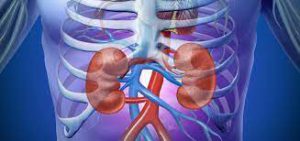
Nội dung bài viết / Table of Contents
This post is also available in: Tiếng Việt (Vietnamese)

Acute kidney failure, also called acute kidney injury or acute renal failure, happens when your kidneys suddenly lose the ability to eliminate excess salts, fluids, and waste materials from the blood.
This elimination is the core of your kidneys’ main function. Body fluids can rise to dangerous levels when kidneys lose their filtering ability. The condition will also cause electrolytes and waste material to accumulate in your body, which can also be life-threatening.
Acute kidney failure can be life-threatening and requires intensive treatment. However, it may be reversible. If you’re in good health otherwise, recovery is possible.
It’s common in people who are already in the hospital. It may develop rapidly over a few hours. It can also develop over a few days to weeks. People who are critically ill and need intensive care have the highest risk of developing acute kidney failure. Please discuss with your doctor for further information.
The common symptoms of acute kidney failure are:
There may be some symptoms not listed above. If you have any concerns about a symptom, please consult your doctor.
If you have any signs or symptoms listed above or have any questions, please consult with your doctor. Everyone’s body acts differently. It is always best to discuss with your doctor what is best for your situation.
Acute kidney failure can occur for many reasons. Among the most common reasons are:
Reduced blood flow can damage your kidneys. The following conditions can lead to decreased blood flow to your kidneys:
Certain disorders can cause clotting within your kidney’s blood vessels, and this can lead to acute kidney failure. These conditions include:
Some infections, such as septicemia and acute pyelonephritis, can directly injure your kidneys.
Pregnancy can also cause complications that harm the kidneys, including placenta previa and placenta abruption.
Acute kidney failure can occur for many reasons. Among the most common reasons are:
Reduced blood flow can damage your kidneys. The following conditions can lead to decreased blood flow to your kidneys:
Certain disorders can cause clotting within your kidney’s blood vessels, and this can lead to acute kidney failure. These conditions include:
Some infections, such as septicemia and acute pyelonephritis, can directly injure your kidneys.
Pregnancy can also cause complications that harm the kidneys, including placenta previa and placenta abruption.
Risk factors
The chances of acquiring acute kidney failure are greater if you’re an older person or if you have any of the following long-term health problems:
If you’re ill or being treated in a hospital’s intensive care unit, you’re at an extremely high risk for acute kidney failure. Being the recipient of heart surgery, abdominal surgery, or a bone marrow transplant can also increase your risk.
The information provided is not a substitute for any medical advice. ALWAYS consult with your doctor for more information.
If you have acute kidney failure, you may have generalized swelling. The swelling is due to fluid retention.
Using a stethoscope, your doctor may hear crackling in the lungs. These sounds can signal fluid retention.
Results of laboratory tests may also show abnormal values, which are new and different from baseline levels. Some of these tests include:
An ultrasound is the preferred method for diagnosing acute kidney failure. However, abdominal X-ray, abdominal CT scan, and abdominal MRI can help your doctor determine if there’s a blockage in your urinary tract.
Certain blood tests may also reveal underlying causes of acute kidney failure.
Your treatment will depend on the cause of your acute kidney failure. The goal is to restore normal kidney function. Preventing fluids and wastes from building up in your body while your kidneys recover is important. In the majority of cases, a kidney specialist called a “nephrologist” makes an evaluation.
Diet
Your doctor will restrict your diet and the amount of liquids you eat and drink. This will reduce the buildup of toxins that the kidneys would normally eliminate. A diet high in carbohydrates and low in protein, salt, and potassium is usually recommended.
Medications
Your doctor may prescribe antibiotics to treat or prevent any infections that occur at the same time. Diuretics may help your kidneys eliminate fluid. Calcium and insulin can help you avoid dangerous increases in your blood potassium levels.
Dialysis
You may need dialysis, but it’s not always necessary, and it will likely only be temporary. Dialysis involves diverting blood out of your body into a machine that filters out waste. The clean blood then returns to your body. If your potassium levels are dangerously high, dialysis can save your life.
Dialysis is necessary if there are changes in your mental status or if you stop urinating. You may also need dialysis if you develop pericarditis or inflammation of the heart. Dialysis can help eliminate nitrogen waste products from your body.
See more post:
What are some lifestyle changes or home remedies that can help me manage acute kidney failure?
During your recovery from acute kidney failure, your doctor may recommend a special diet to help support your kidneys and limit the work they must do. Your doctor may refer you to a dietitian who can analyze your current diet and suggest ways to make your diet easier on your kidneys.
Depending on your situation, your dietitian may recommend that you:
As your kidneys recover, you may no longer need to eat a special diet, although healthy eating remains important.
If you have any questions, please consult with your doctor to better understand the best solution for you.